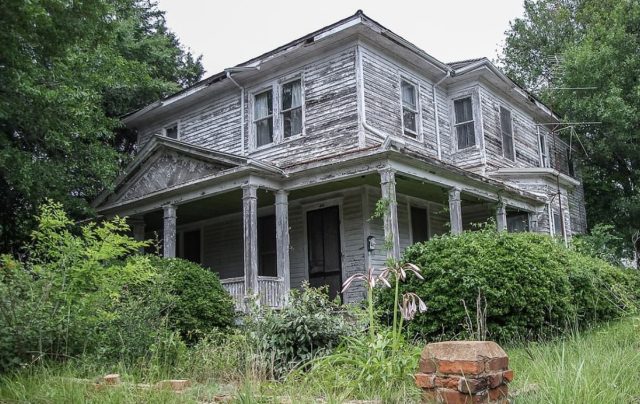Are you looking for a new way to make money in real estate? Have you considered finding and investing in vacant houses? While it may seem daunting to locate these hidden gems, the potential profits can be worth the effort. In this article, we will discuss how to find vacant houses and turn them into profitable investments. How to Make Money Finding Vacant Houses.
Understanding the Market
Before diving into the world of vacant houses, it’s important to understand the market. Vacant houses are properties that have been abandoned or left unoccupied for an extended period of time. They can be owned by individuals, banks, or the government. Vacant houses are often sold at a discount due to their condition or lack of maintenance. This makes them an attractive investment opportunity for those willing to put in the work.
Researching Properties
The first step in finding vacant houses is to research potential properties. You can start by driving around your local area and looking for signs of neglect, such as overgrown lawns, boarded-up windows, or mailboxes overflowing with letters. You can also search online databases or contact local real estate agents who specialize in distressed properties. Once you have identified potential properties, you will need to gather information about their ownership, condition, and market value.

Assessing the Property
Once you have identified a potential property, it’s important to assess its condition and value. This will help you determine if the property is worth investing in. You can do this by conducting a visual inspection of the property and hiring a professional inspector to assess any structural or mechanical issues. You should also research the market value of similar properties in the area to determine if the property is priced competitively.
Negotiating the Purchase
Once you have determined that the property is worth investing in, it’s time to negotiate the purchase. You can do this by contacting the owner directly or working with a real estate agent. When negotiating, it’s important to keep in mind that the owner may be motivated to sell the property quickly and at a discount. This can give you leverage in the negotiation process.
Financing the Investment
Financing the investment in a vacant house can be challenging. Traditional lenders may be hesitant to provide financing for a property in poor condition or with no occupants. However, there are alternative financing options available, such as hard money loans or private lenders. It’s important to research these options and determine which one is right for your investment strategy.
Renovating the Property
Once you have purchased the property, it’s time to renovate it. This can involve anything from minor repairs to a full-scale renovation. The goal is to bring the property up to a livable standard and increase its market value. It’s important to have a clear plan and budget for the renovation process to ensure that you don’t overspend and decrease your potential profits.
Marketing the Property
Once the property has been renovated, it’s time to market it for sale or rent. This can involve listing the property on real estate websites, working with a real estate agent, or marketing directly to potential buyers or renters. It’s important to have a clear understanding of the market demand and price the property competitively to attract potential buyers or renters.
Managing the Property
If you decide to rent the property, it’s important to have a plan for managing it. This can involve screening tenants, collecting rent, and maintaining the property. You can do this yourself or hire a property management company to handle these tasks for you. It’s important to have a clear understanding of the responsibilities involved in managing a rental property and factor these into your investment strategy.
Assessing the Property Value
Assessing the value of a vacant property is an essential step in the investment process. Before making an offer, it’s important to know what the property is worth. You can use tools like Zillow or Redfin to look up the estimated value of similar properties in the area. You can also hire a professional appraiser to assess the property’s value based on its location, condition, and potential for renovation.
Networking with Real Estate Professionals
Networking with real estate professionals can be a great way to find potential investment opportunities. Real estate agents, appraisers, and property managers can provide valuable insights into the local market and help you find properties that meet your investment criteria. Attending local real estate events or joining real estate investor groups can also help you connect with like-minded individuals and expand your network.
Identifying Target Markets
When investing in vacant houses, it’s important to identify target markets. This can involve looking for properties in areas with high demand for rental housing or properties that are close to popular amenities like schools or shopping centers. By targeting specific markets, you can increase your chances of finding properties that will generate consistent rental income or appreciate in value over time.
Creating a Renovation Plan
Creating a renovation plan is an essential step in the investment process. This can involve working with a contractor to identify necessary repairs and upgrades or developing a DIY plan for smaller projects. It’s important to have a clear budget and timeline for the renovation process to avoid overspending and ensure that the property is ready for the market as soon as possible.
Utilizing Online Resources
There are many online resources available for investors looking to find and invest in vacant houses. Websites like Auction.com and Hubzu.com offer online auctions for distressed properties. Real estate crowdfunding platforms like Fundrise and RealtyMogul allow investors to pool their resources and invest in larger properties. By utilizing online resources, you can access a wider range of investment opportunities and streamline the investment process.
Mitigating Risk
Investing in vacant houses can be a high-risk, high-reward strategy. It’s important to have a clear understanding of the risks involved and take steps to mitigate them. This can involve conducting thorough due diligence on potential properties, having a solid renovation plan in place, and having a contingency plan in case the property doesn’t perform as expected. By mitigating risk, you can increase your chances of success and avoid costly mistakes.
Conclusion
How to Make Money Finding Vacant Houses Investing in vacant houses can be a lucrative way to make money in real estate. However, it’s important to understand the market, research potential properties, assess.
FAQs
- What is a vacant house?
A vacant house is a property that has been abandoned or left unoccupied for an extended period of time. - How do I find vacant houses?
You can find vacant houses by driving around your local area, searching online databases, or contacting local real estate agents who specialize in distressed properties. - What is the potential profit of investing in vacant houses?
The potential profit of investing in vacant houses can vary depending on the location, condition, and market demand. However, investors can often purchase these properties at a discount and renovate them to increase their value. - What are some financing options for investing in vacant houses?
Alternative financing options like hard money loans or private lenders can be used to finance investments in vacant houses. - How can I mitigate risk when investing in vacant houses?
Mitigating risk when investing in vacant houses involves conducting thorough due diligence, having a solid renovation plan in place, and having a contingency plan in case the property doesn’t perform as expected.








